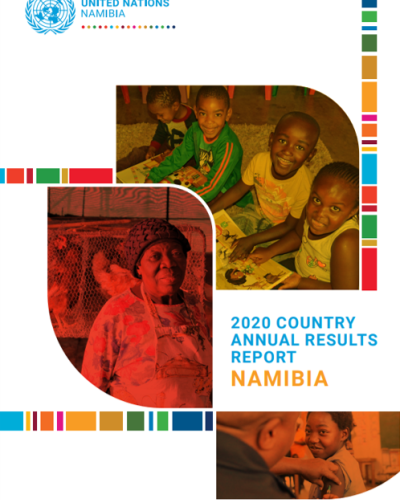2020 Country Annual Results Report Namibia

The report finds that the triple challenges for Namibia; inequality, unemployment and poverty, have been exacerbated by national and international lockdowns. Futhermore, the economy contracted in 2019 and 2017 and registered anaemic growth in 2018 because of poor performance in construction and mining, persistent drought, and weakening demand for Namibian exports.
The report also explores the 2020 results of the UNPAF and how this framework has been utilised to help remedy some of these challenges facing Namibia. The four key pillars the 2020 UNPAF has focussed on are economic progression, social transformation, environmental stability, and good governance.
It finds that the UN working together made great achievements in the support of the COVID-19 response and other activities. The interconnectedness of UNPAF pillars and results made delivering as one possible. It was noted that mobile outreach services are effective to serve the most marginalised/ remote rural populations with SGBV services.
It also discovered that the COVID-19 pandemic became a catalyst that shed light on the issue of violence (both challenges and opportunities) as the pandemic reminded us of the importance of coordination and partnerships. It brought to light the importance of caring for frontline responders (police, social workers, mental health practitioners, health workers, etc.). The COVID-19 Socio-economic impact analysis and monitoring will inform the Economic Recovery Strategy, including a comprehensive social protection response.
Taking into account the report's findings, in the context of the COVID-19 pandemic, the key focus of the UNCT for 2021 within the UNPAF will be recovery with a multidimensional approach:
• Social protection and safety nets: paying special attention to empowering women, youth, and children, and supporting protection from violence, abuse, and exploitation.
• Support the strengthening and efficiency of the health system and delivery of emergency and essential services, with focus on the national vaccination programme.
• Economic recovery: promoting MSMEs and green job opportunities for youth and women and vulnerable groups.
• Climate change, resilience and HIV and AIDS will continue to be crosscutting topics in all initiatives.
• Strengthening partnerships for SDG acceleration and financing.

















